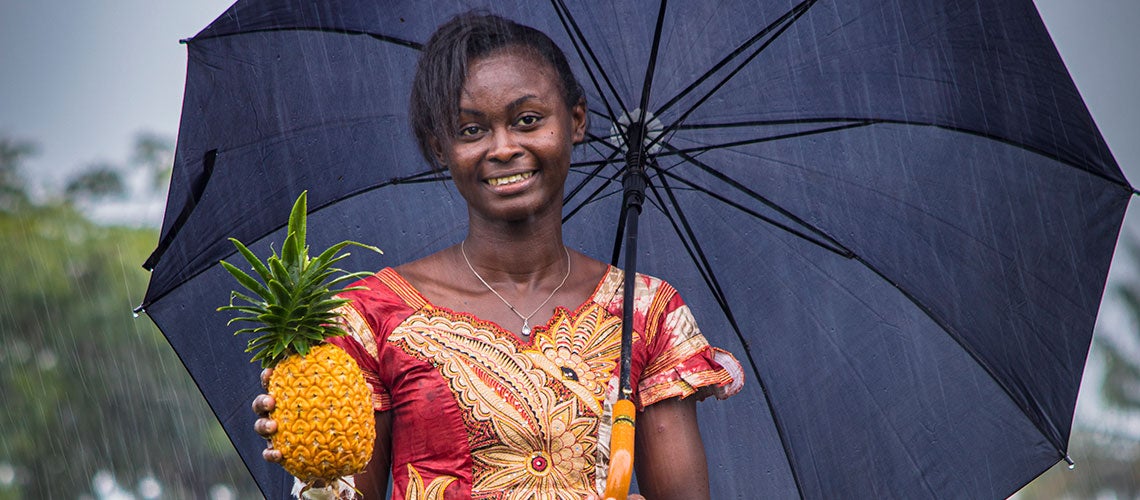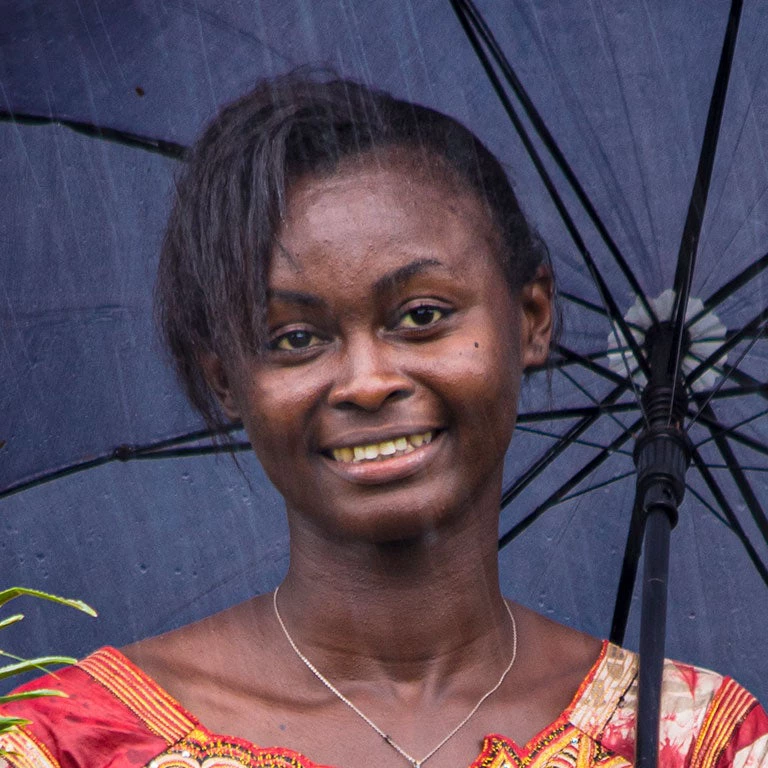 Fière d’être jeune, femme et agro entrepreneur
Fière d’être jeune, femme et agro entrepreneur
Despite the significant agricultural potential of over 6 million hectares of farmland and 300,000 hectares of irrigable land, my country, Guinea, is unable to derive the full benefit of this wealth that could provide employment for young people and women. To date, only 25% of farmland and 10% of irrigable land are in use. Guinea also posts a high unemployment rate of 75% among youth, who represent over 60% of our 13 million inhabitants. This is one of the key causes of their exodus from rural areas and migration toward big cities and the west.
In researching this issue, I noticed that despite efforts by the government and development actors to boost agricultural production, Guinea experiences post-harvest losses of 40% to 55% and over 10% in sales losses - worrisome figures in light of producers’ challenging working conditions.
I am Guinean and African: young, full of potential, and ready to work. I am also passionate about agriculture and come from a family of entrepreneurs. In 2011, after completing my accounting studies, I decided to bring my modest contribution to this sector by launching my own business, which now employs about 10 women and young people, and helps reduce post-harvest losses. That hasn’t always been easy, particularly in rural areas, in a sector dominated by men who very rarely include young people and women in decision making. But I decided to transform this challenge into an opportunity and I positioned myself in the agrifood processing sector.
I started with only 3 million Guinean francs (approximately $260) and support from the Food Security through Commercialization of Agriculture (FSCA) program to install a locally built solar-powered fruit drying unit. In 2014, things began to take a positive turn when I had the opportunity to participate in a show in Morocco at which our products were very well received by the attendees, which in turn led to a partnership to export dried pineapple. This success gave me the courage to continue.
Since the launch of my business, I have purchased over 320 metric tons of fresh pineapple and created a local economy by working with local producers and women’s cooperatives. I produce approximately 16 metric tons of dried pineapple annually, and I have also opened an organic restaurant, which allows me to complete the production chain. Our products are found in numerous gas stations, shops, and supermarkets in the capital, Conakry, and in cities and towns across the country. We have participated in several national and international fairs and expositions. As our products are in demand, we are in the process of expanding to increase production capacity and exports to the international market.
Recently, the West Africa Agricultural Productivity Program (WAAPP) provided me with an electric dryer with a production capacity of 10 metric tons per month. This will allow us to boost our dried fruit production capacity from 6 kg to 80 kg per week, to directly employ 15 women, and to be competitive in regional and international markets.
However, entrepreneurship continues to present considerable challenges, including, among others, difficulties with accessing financing, the lack of suitable skills among young people in the productive sectors, and the need to further develop local skills to become more competitive and continue to offer superior quality in increasingly demanding markets.
Despite all this, I am confident that Guinean youth can achieve success and independence through entrepreneurship and by drawing on Guinea’s potential to create jobs and improve living conditions.
Entrepreneurship in the agrifood sector represents a great opportunity to be seized by young people, with myriad career prospects given the considerable degree of expected foreign investment in Guinea, particularly in the mining sector, which is estimated at over $7 billion.
I was always told that agriculture and entrepreneurship were reserved for men. Today, I can proudly state that this is not the case. My business helps provide employment to over 100 women organized into cooperatives, and I develop and sell high-quality Guinean products at the regional level. This is only the beginning, and I hope to inspire other young people to embark on entrepreneurship to contribute to developing our nation.


Join the Conversation